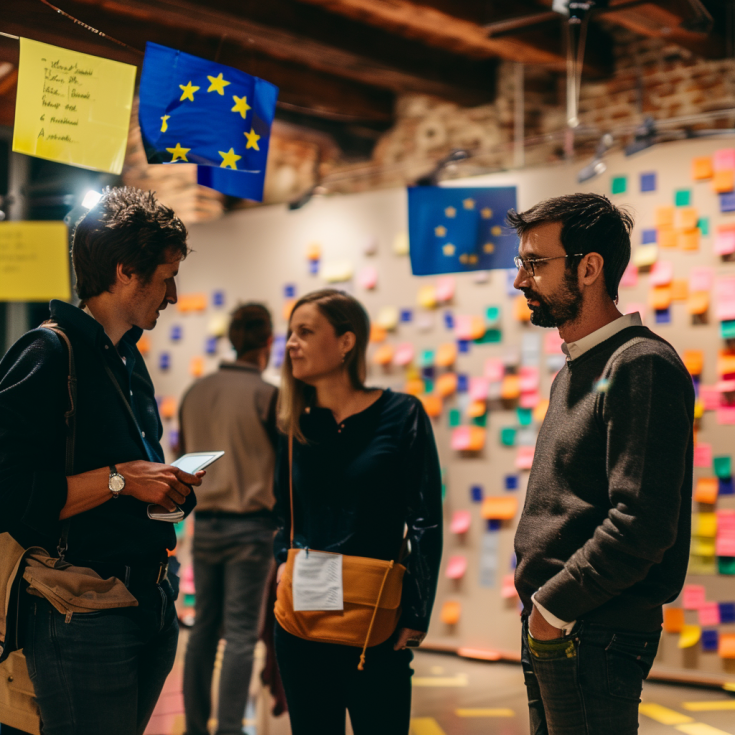Strategic and participatory foresight

On 21 May 024, the Policy Learning Platform is hosting a webinar on Strategic and Participatory Foresight from 14:00 to 15:30 CEST.
Strategic foresight, the practice of investigating, predicting, and shaping the future, is instrumental in leveraging collective intelligence methodically.
Techniques such as horizon scanning, which involves assessing megatrends and emerging issues along with their policy implications, as well as envisioning alternative futures through scenario planning, play a vital role in informing strategic political decisions (European Commission).
The European Commission launched the Competence Centre on Foresight to support EU policy making by
- providing strategic and future-oriented input,
- developing an anticipatory culture inside the European Commission,
- continuously experimenting and developing different methods and tools to make foresight practically useful for decision making processes.
Developing a future-oriented mindset in policymaking is essential for the EU to enhance its ability to navigate a progressively uncertain and intricate global societal challenges. This approach will align short-term endeavours with long-term goals, empowering the EU to take the lead in defining its trajectory and influencing global dynamics.
At the regional level, strategic foresight can be combined with participatory approaches to address place-based societal challenges. Participatory foresight engages stakeholders, including the public, in shaping future scenarios collaboratively, aiming to democratise decision-making and foster long-term thinking for informed collective action.
Combining both strategic and participatory foresight approaches allows for a comprehensive understanding of future possibilities and facilitates informed decision-making that aligns with long-term goals while considering the needs and preferences of various stakeholders.
Three common approaches to participatory foresight include:
- Citizen-visioning: where communities develop a shared vision of their desired future.
- Futures dialogue: a flexible framework for discussions about the future among stakeholder groups, especially useful across various governance levels.
- Narrative generation: a technique for crafting qualitative future storylines, effective when participatory, multidimensional, and pragmatic
What you can expect:
Strategic and Participatory Foresight – Latest trends
- Presentation by Katerina Ciampi Stancova, Policy Analyst, OECD Trento Centre for Local Development, Italy.
- Presentation by Cristian Matti, European Commission’s Joint Research Centre (JRC), Sevilla, Spain.
Latest insights from Interreg Europe good practices
- Presentation on future Key Skills and Competences for I4.0 (SMARTY)
by Andreja Hlišč and Simona Vernon, Chamber of Commerce and Industry of Slovenia, Slovenia. - Presentation on transition Labs for open, inclusive and responsible place-based innovation processes
by Mona Enell-Nilsson, University of Vaasa , Finland.